Bitcoin was the world’s first and is currently the most popular cryptocurrency available. It has revolutionized the world of finance, introducing the concept of decentralized digital currency.
It has allowed for peer-to-peer (P2P) transactions without the need for third-party centralized institutions, like banks, with over 50,000 confirmed transactions taking place daily.
Over the last few decades, Bitcoin has only continued to grow globally, which has also called the attention of governments, tax agencies, and regulators.
As a consequence, the legalization of Bitcoin varies on the country or region you live in.
Some countries have embraced BTC with open arms while others have put in place strict bans on its use.
In this post, we will try to break down a worldwide overview of the legal status of Bitcoin, trying to understand whether are Bitcoins illegal. We will review where Bitcoin is illegal and legal and go over the regulations that are in place for using it. Finally, we will provide some insights into secure storage options and how to safeguard your BTC anonymously.
Where is Bitcoin Illegal?
The legality of Bitcoin varies around the world, with several countries having strict bans on owning and using it. Here is a list of places where BTC is distinctly illegal:
China
China has a strict ban against the use and ownership of all crypto. It has taken a hard stance against it and in 2021, the People’s Bank of China declared that all cryptocurrencies are illegal, including the activity of trading, and mining.
Algeria
Algeria has prohibited the use, holding, purchase, and sale of cryptocurrencies since 2018. This law explicitly bans any form of cryptocurrency-related activity, due to concerns over fraud, and international money laundering.
Egypt
Bitcoin and other cryptocurrencies are prohibited in Egypt under Islamic law. In 2017, the country’s primary Islamic advisory body, Dar al-Ifta stated it, with a follow-up of the Central Bank of Egypt issuing regulations that ban the trading and promo of cryptocurrencies. They claim fears and concerns about financial stability and security.
Bolivia
In South America, El Banco Central de Bolivia, Bolivia’s central bank, has banned the use of all cryptocurrencies. The ban was believed to be set to help preserve the national currency and avoid the promotion of scams and money laundering.

Other Countries with Strict Bans
Bangladesh: Perhaps the country with the strictest law, The Bangladesh Bank has banned the use of crypto, with the possibility of imprisonment under the country’s strict anti-money laundering laws.
Morocco: The Moroccan Foreign Exchange Office and the Ministry of Finance issued a public statement in 2017 declaring that transactions involving cryptocurrencies would be subject to penalties.
Nepal: The Nepal Rastra Bank declared Bitcoin and other cryptocurrencies illegal in 2017, citing concerns over financial crime and instability.
Where is Bitcoin Legal?
Although Bitcoin is illegal in a few places around the world, many countries and regions have embraced it, even clearly integrating it into their legal and tax systems. Here are some of the countries where Bitcoin is legal:
United States
Bitcoin is legal but is regulated by multiple agencies, like the Securities and Exchange Commission (SEC), the Commodity Futures Trading Commission (CFTC), and the Financial Crimes Enforcement Network (FinCEN).
In the eyes of the US government, Bitcoin is considered property for tax purposes, and users must adhere to Anti-Money Laundering (AML) and Know Your Customer (KYC) regulations when buying or trading Bitcoin and other crypto.
Canada
Like its neighbor to the south, Canada has a progressive view and acceptance of Bitcoin. It is a legal means of payment and investment and is viewed as a commodity for tax purposes, and transactions are subject to capital gains tax.
Canada follows Anti-Money Laundering (AML) laws to regulate cryptocurrency exchanges and enforce compliance.
Japan
Known for being one of the first countries to accept and recognize Bitcoin, Japan has put into place The Payment Services Act to help regulate Bitcoin and other cryptocurrencies.
This means that exchanges need to register with the Financial Services Agency (FSA) and comply with AML and KYC regulations.
European Union
In the EU, Bitcoin is mostly legal, but regulations vary depending on each member state.
The European Court of Justice has ruled that Bitcoin transactions are exempt from value-added tax (VAT), however, individual countries within the EU have their own specific regulations and requirements for cryptocurrency use and exchanges, as well as reporting gains to tax authority agencies.
📝 It’s worth noting that many of the Bitcoin-accepted countries and regions have set laws and regulations put into play for KYC and user identification. For those seeking anonymity, there are a few legal loopholes that help to maintain your privacy, which we will get into later in this post.
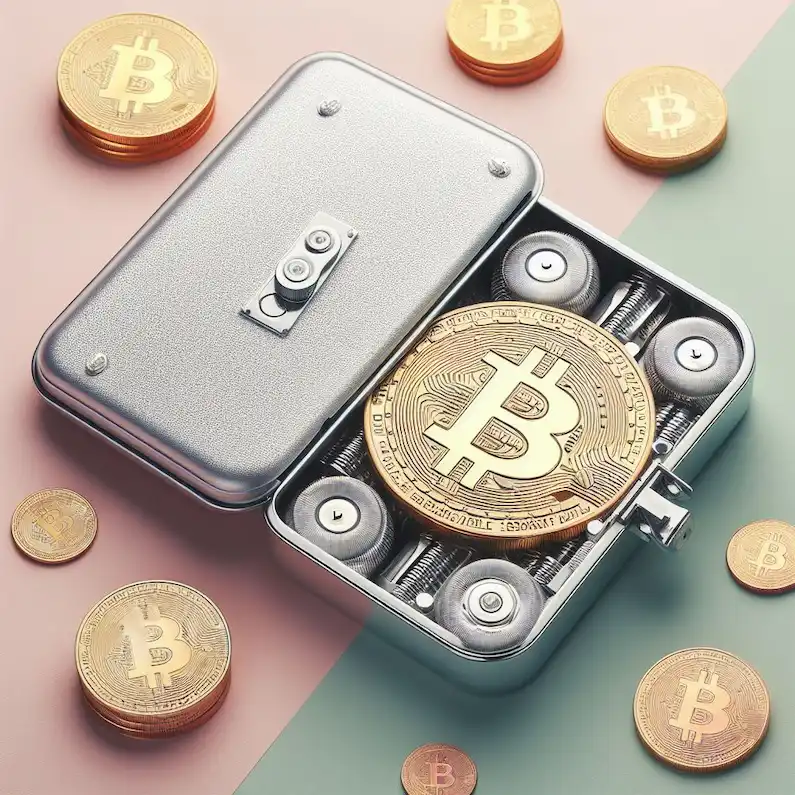
Legal but Regulatory Duties
There are many countries worldwide that have implemented regulatory duties on Bitcoin so that it aligns with their country’s financial and legal standards.
Bitcoin users usually need to pay taxes on their crypto transactions and holdings. In many places, Bitcoin is viewed as property, and transactions involving Bitcoin and other cryptocurrencies, are subject to capital gains tax.
For example, in the United States, the IRS states that Bitcoin transactions must be reported and taxed accordingly.
Declaring and paying crypto wallet taxes depends on your reported gains or losses on your tax returns. There are similar regulations in Canada and Australia, where Bitcoin transactions are also subject to capital gains tax.
It’s your responsibility to understand the laws and declare your crypto on tax returns when necessary.
So, Are Bitcoins Illegal in the US?
No, it is legal but you must comply with the regulatory standard put in place by each financial institution.
Can the US Make Bitcoin Illegal?
The US government, like any other country, has the potential to impose restrictions or bans at any time.
Can the US Track Bitcoin?
This is a gray area because Bitcoin is supposed to be pseudonymous, but Bitcoin transactions can be tracked in different ways:
➡️KYC and AML Regulations.
➡️Blockchain’s public ledger.
➡️Tools and services like Chainalysis offer blockchain analysis that helps to trace transactions and identify suspicious activity.
Can You Go to Jail for Using Crypto?
Imprissinment for using Bitcoin is possible, but many variations can lead to this severe outcome.
- You have ownership of BTC or other cryptos in countries that outright ban it.
- You are involved in illegal activities that include fraud, money laundering, or tax evasion.
- You don’t report your Bitcoin gains and earnings, complying with regulations.
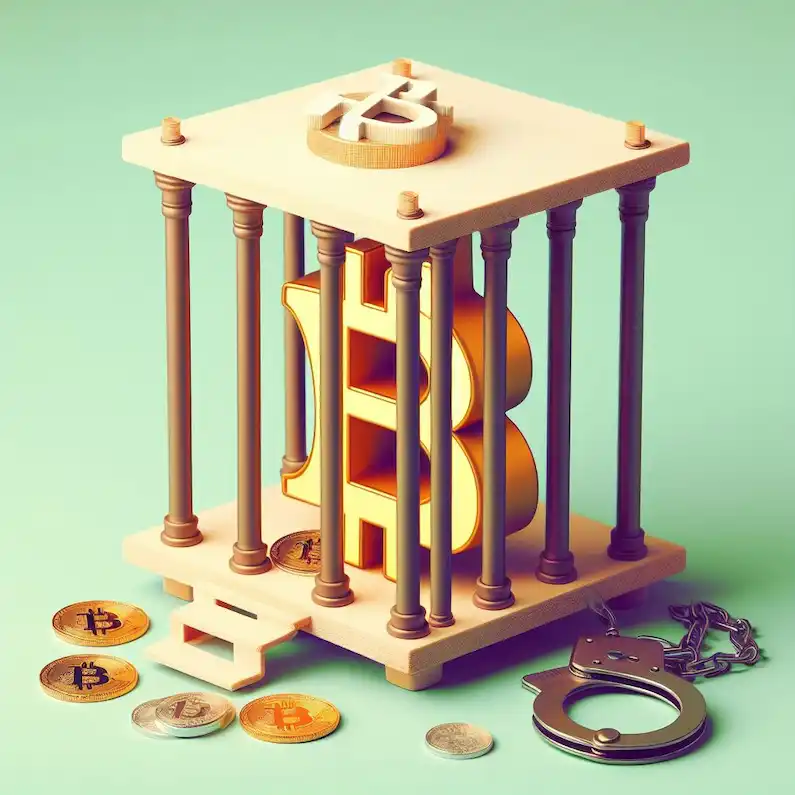
Storing Your Crypto Anonymously is Not Illegal
Keeping anonymity with crypto investments is important to many Bitcoin users. Although there are rules and regulations put in place to monitor transactions and the countability of your earnings, there are anonymous wallets that you can use to help maintain your privacy.
Legal questions surrounding the use of anonymous wallets can vary depending on jurisdictions, but, there are no specific laws that prohibit privacy-first wallets.
Anonymous crypto wallets are not illegal and they offer enhanced privacy, security, and the ability to buy goods and investments without the need to reveal your identity.
Taking the EU as an example, it doesn’t rule out the use of crypto wallets or sending BTC with them using P2P sharing, but instead places caps on high amounts of cash payments.
The Safest and Most Secure Way to Store Your Bitcoin Long-Term
Material Bitcoin Cold Wallet is a hardware wallet specifically made for keeping your privacy intact for the secure long-term storage of Bitcoin.
Firstly, you can shop for your Material Wallet anonymously, choosing to pay in cash upon delivery, avoiding the need to enter your credit card or banking info.
Secondly, the Material Bitcoin wallet keeps your private keys offline, giving you the highest protection available from online threats and hacks.
You buy BTC directly from your Material Wallet and even send and receive Bitcoin from other wallet users directly.
This gives you full custody and control of your crypto without the interference of government agencies or regulations.
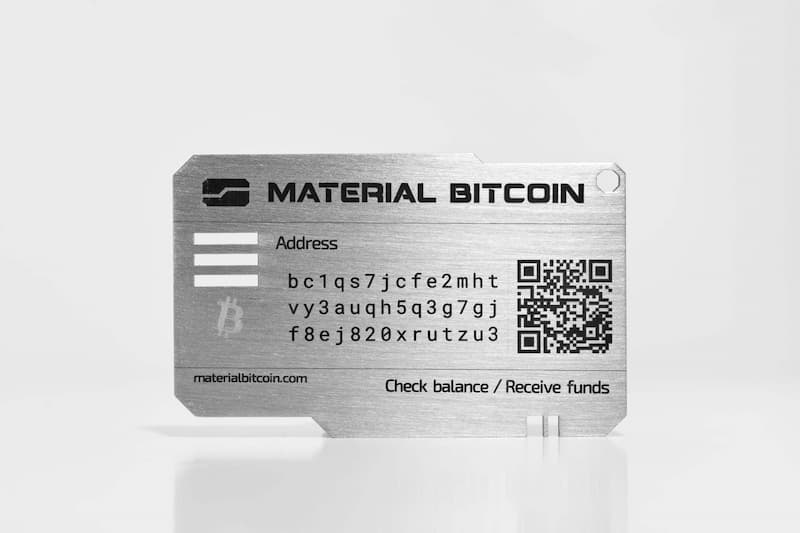
Staying Up-to-Date on Bitcoin Legality
Answering the question “Are Bitcoins Illegal?” varies around the world and even then, there are many possibilities and variations to the laws and regulations.
Some countries have outright bans, while others embrace it with open arms, and some have placed regulations but not laws against its ownership, which can make understanding your responsibilities and legal obligations within your region even more confusing.
Storing Bitcoin anonymously is not illegal and with the Material Bitcoin Cold Wallet, you are given high protection and security, keeping private keys offline and protected.
Staying informed about the legal changes internationally with Bitcoin and crypto is recommended and using secure storage methods will always help you make the most of your Bitcoin investments.

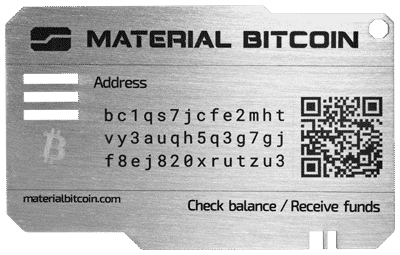
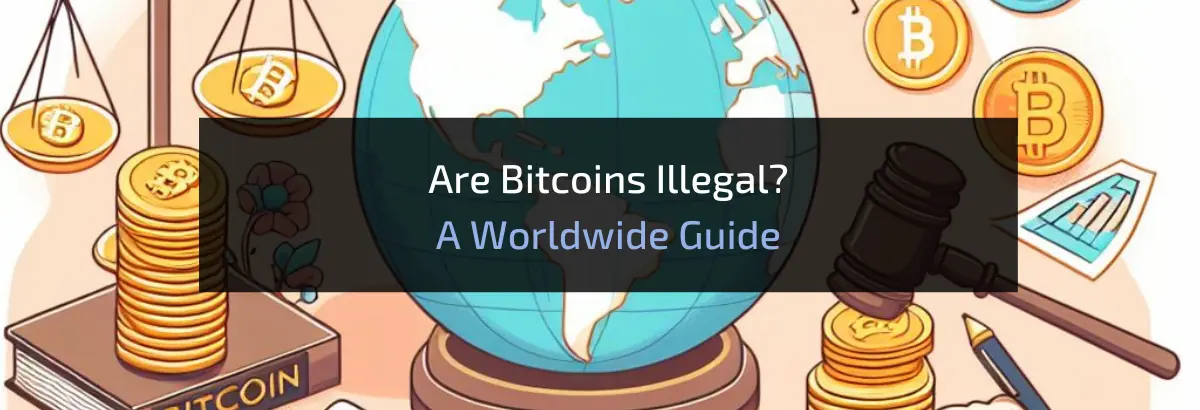




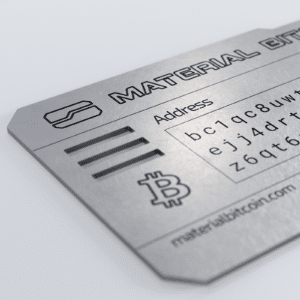


0 Comments